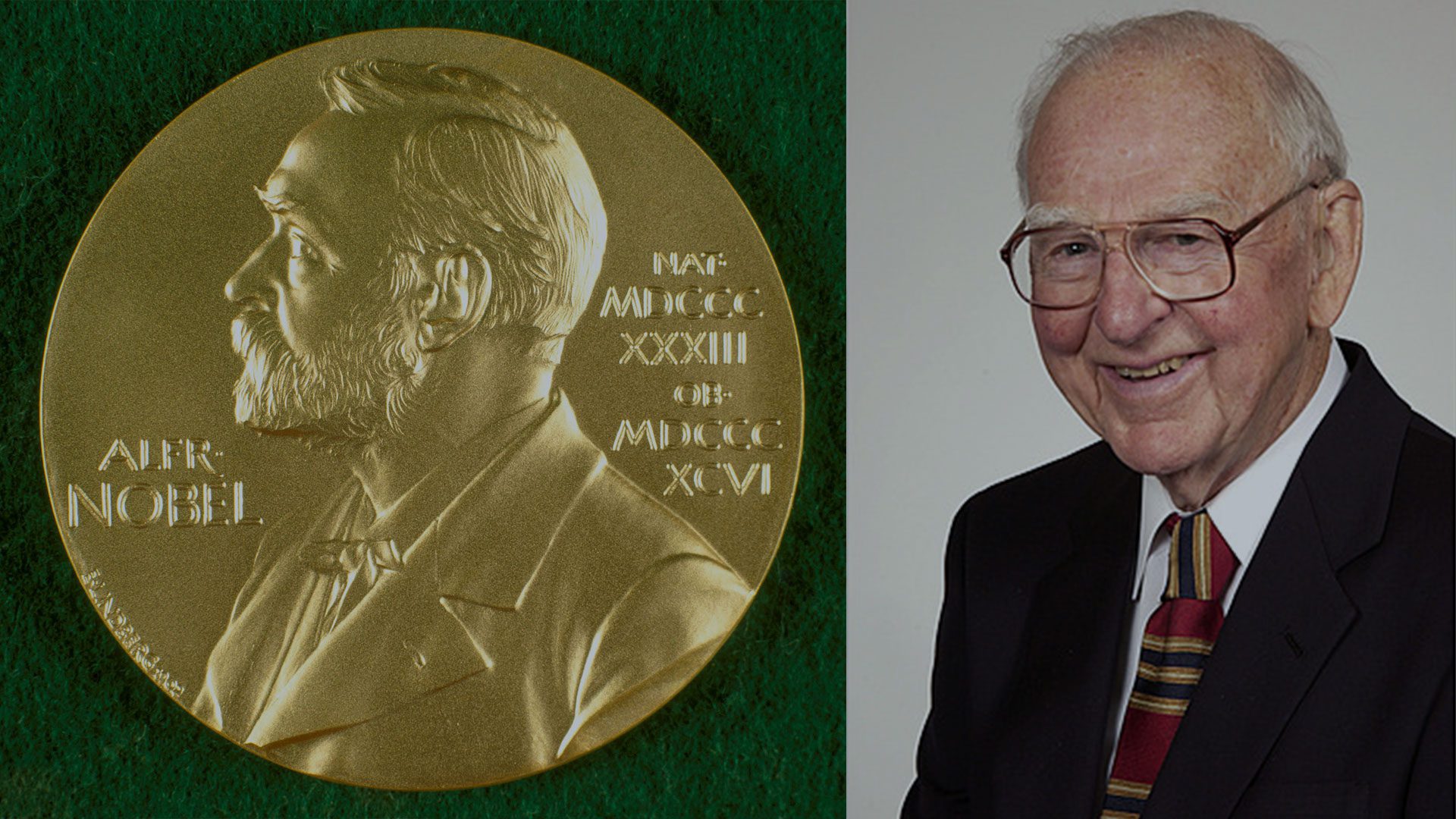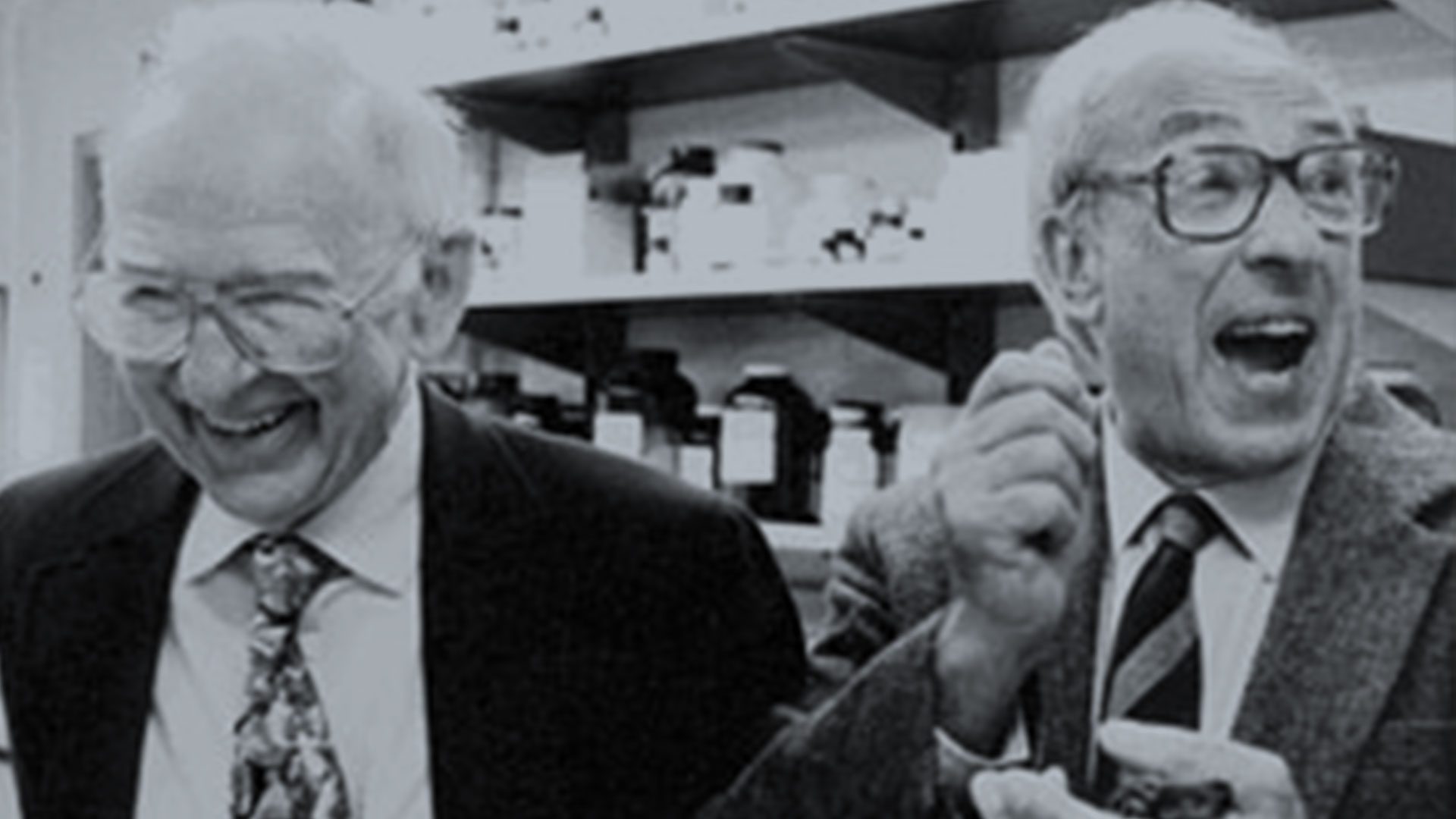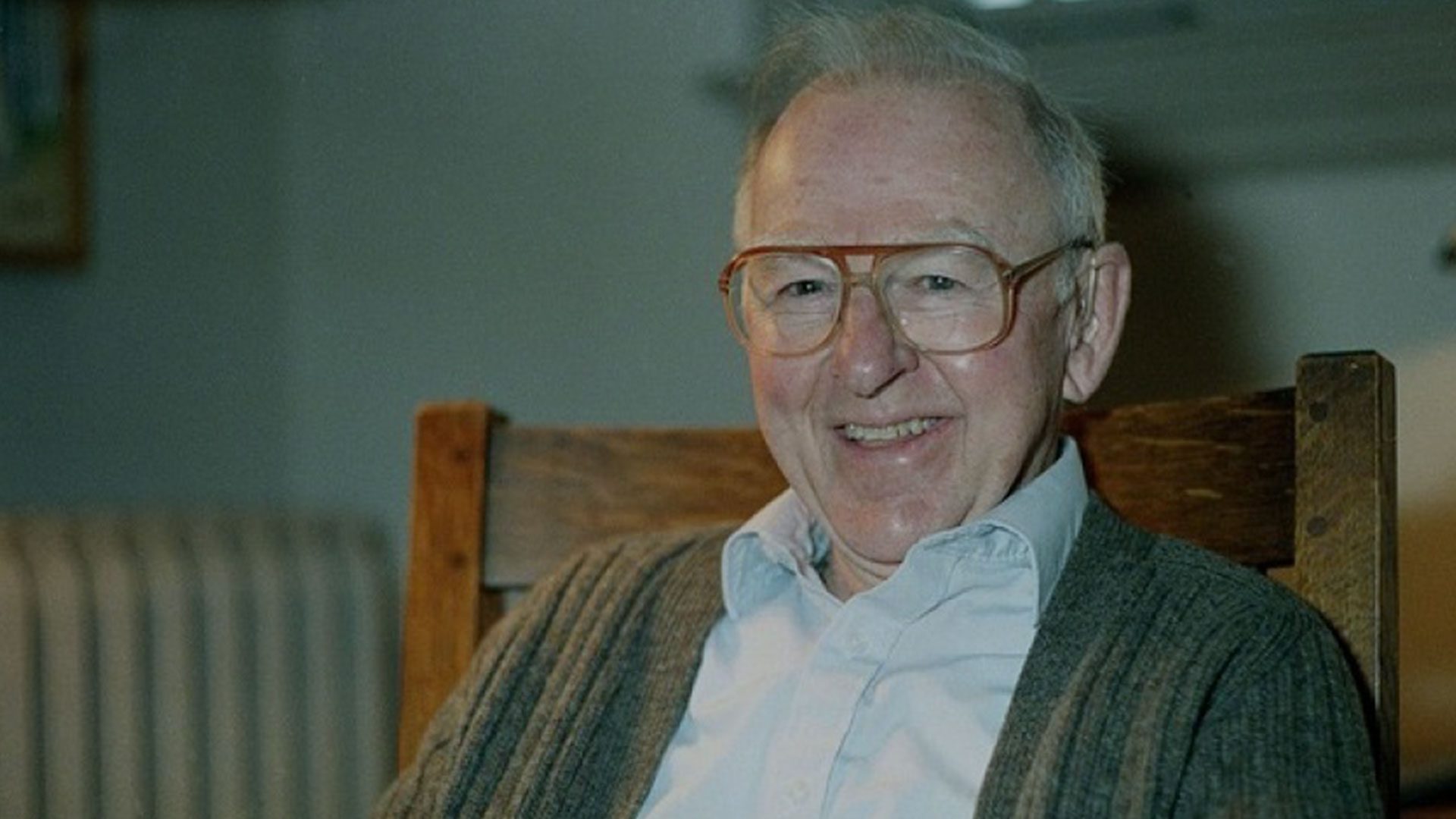The Thirty-fifth Annual
Edwin G. Krebs Lecture in Molecular Pharmacology
Regulation of the RAF family kinases: The Details Do Matter!
Dr. Deborah K. Morrison

Chief, Senior Investigator
Center for Cancer Research
National Cancer Institute
Tuesday, May 7, 2024
2:30pm
Health Sciences, D-209
About the Lectureship
 The goal of research in molecular pharmacology is to understand the action of hormones and drugs on the molecular components of their target cells. Dr. Edwin G. Krebs, Emeritus Professor of Pharmacology and Biochemistry and Emeritus Investigator of the Howard Hughes Medical Institute, is a pioneer in unraveling the complex pathways by which hormones and drugs regulate cellular functions. In 1955, Dr. Krebs and Dr. Edmond Fischer, working in the Department of Biochemistry at the University of Washington, discovered the process of protein phosphorylation as the final chemical reaction in the hormonal pathway that regulates metabolism of glycogen, a complex carbohydrate used as an energy storage molecule in cells.
The goal of research in molecular pharmacology is to understand the action of hormones and drugs on the molecular components of their target cells. Dr. Edwin G. Krebs, Emeritus Professor of Pharmacology and Biochemistry and Emeritus Investigator of the Howard Hughes Medical Institute, is a pioneer in unraveling the complex pathways by which hormones and drugs regulate cellular functions. In 1955, Dr. Krebs and Dr. Edmond Fischer, working in the Department of Biochemistry at the University of Washington, discovered the process of protein phosphorylation as the final chemical reaction in the hormonal pathway that regulates metabolism of glycogen, a complex carbohydrate used as an energy storage molecule in cells.
The enzyme that carries out this chemical reaction, phosphorylase kinase, was the first example of a protein kinase, a family of enzymes now known to be the most important regulators of cell function. In further studies of this process in 1968, Dr. Krebs and his associates discovered a new enzyme, called cyclic AMP-dependent protein kinase, which mediates nearly all of the myriad actions of cyclic AMP regulation of cellular function by hormones and drugs. In recent years, members of the protein kinase enzyme family have been shown to be important in the action of an increasing number of hormones and drugs, as well as in regulation of cell growth, development, and malignant transformation, and in learning and memory in the nervous system. The pioneering discovery of protein phosphorylation by Drs. Krebs and Fischer led to the receipt of the Nobel Prize for Physiology for Medicine in 1992.
During his outstanding career, Dr. Krebs has been Professor of Biochemistry at the University of Washington and Professor and Chairman of the Department of Biological Chemistry at the University of California, Davis from 1968 to 1977. As the second Chairman of the Department of Pharmacology at the University of Washington, from 1977 to 1984, Dr. Krebs led a major expansion of research in molecular pharmacology at this university. The Edwin G. Krebs Lectureship in Molecular Pharmacology is intended to recognize Dr. Krebs’ major achievements in research and administration in the field of molecular pharmacology and to stimulate at the University further development of this area of excellence.
Past Lectures
The Edwin G. Krebs Lectureship in Molecular Pharmacology
Annual List of Lectures
2023 Interplay between Rab GTPases and LRRK2 Kinase in Parkinson’s
Dr. Dario Alessi, Principal Investigator & Director,MRC Protein Phosphorylation and Ubiquitylation Unit, University of Dundee
2022 The future of pharmacology: Precise genome editing
Dr. Krzysztof Palczewski, Donald Bren Professor Irving H. Leopold Chair of Ophthalmology University of California, Irvine
2019 The importance of protein dynamics for MAP kinase activation and inhibitor design: The case of ERK2
Dr. Natalie Ahn, Professor of Chemistry and Biochemistry, Univeristy of Colorado at Boulder
2018 Vitamin D: Targeting genes to corral cancer
Dr. Ron Evans, Professor and Director, Gene Expression Laboratory, Howard Hughes Medical Investigator, March of Dimes Chair in Molecular and Developmental Biology, Salk Institute for Biological Studies
2017 Drugging Undruggable Targets in Oncology, from Kinases to GTPases
Dr. Kevan Shokat, Professor and Chair, University of California, San Francisco
2016 Understanding Pain Mechanisms: From Physiology to Atomic Structure
Dr. David Julius, Professor and Chair, University of California, San Francisco
2015 The Molecular Choreography Underlying Signal Transmission at Chemical Synapses
Dr. Lily Jan, Professor, University of California, San Francisco, Investigator, Howard Hughes Medical Institute
2014 The Molecular Choreography Underlying Signal Transmission at Chemical Synapses
Dr. Michael Cahalan, Professor and Chair, University of California, Irvine
2013 The Molecular Choreography Underlying Signal Transmission at Chemical Synapses
Dr. Eric Gouaux, Senior Scientist, Vollum Institute, Oregon Health & Science University, Investigator, Howard Hughes Medical Institute
2012 Structural mechanisms in the activation of the EGF receptor.
John Kuriyan, Ph.D., Chancellor’s Professor of Biochemistry, Biophysics and Structural Biology, Howard Hughes Medical Institute Investigator, University of California, Berkeley
2011 The nicotinic acetylcholine receptor: a model of allosteric membrane protein
Professor Jean-Pierre Changeux, Pasteur Institute, Paris
2010 Structural Insights into the Dynamic Process of G Protein Coupled Receptor Activation
Brian Kobilka, MD, Professor, Medicine and Molecular and Cellular Physiology, Stanford University
2009 The Islet of Langerhans as an Integrative Signaling Unit
Per-Olof Berggren, Ph.D., The Rolf Luft Research Center for Diabetes and Endocrinology, Karolinska Institutet
2008 Cell Signaling in Space & Time
John Scott, Ph.D., Vollum Institute
2007 Protein Tyrosine Phosphatases: Their Roles in Health and Disease
Jack Dixon, Ph.D., University of California San Diego School of Medicine
2006 Use of 3D Models to Study Signaling Pathways Involved in Epithelial Morphogenesis and Oncogenesis
Joan Brugge, Ph.D., Chair and Professor, Cell Biology, Harvard Medical School
2005 Facing Grand Challenges: Drug Discovery and Development in the 21st Century
Roger M. Perlmutter, M.D., Ph.D., Executive Vice President for Research and Development, Amgen, Inc.
2004 The Control of Cell Cycle Transitions
Tim Hunt, Ph.D., Principal Scientist, Cancer Research UK, Clare Hall Laboratories
2003 Signal Transduction by Stress-activated Protein Kinases
Roger J. Davis, Ph.D., Investigator, Howard Hughes Medical Institute and Professor, Program in Molecular Medicine, University of Massachusetts Medical School, Worcester
2002 Regulation of transcriptional coactivators and corepressors
Richard H. Goodman, Ph.D., Director and Senior Scientist, Vollum Institute, Professor, Departments of Medicine, Cell and Developmental Biology, Biochemistry and Molecular Biology and Vice-Chairman, Department of Medicine, Oregon Health Sciences University
2001 Protein Modules in Signal Transduction and the Cell Cycle
Anthony J. Pawson, Ph.D., Full Professor, University of Toronto & Head, Program in Molecular Biology and Cancer, Samuel Lunenfeld Research Center
2000 Genetically Encoded Indicators of Signal Transduction and Protein Interactions
Roger Y. Tsien, Ph.D., Professor, Departments of Pharmacology and Chemistry & Biochemistry, University of California, San Diego and Investigator, Howard Hughes Medical Institute
1999 Elementary and Global Aspects of Calcium Signaling
Michael J. Berridge, Ph.D., Deputy Chief Scientific Officer, Laboratory of Molecular Signaling, The Babraham Institute; Honorary Professor of Cell Signaling, University of Cambridge
1998 Signaling via Phosphoinositide Kinases
Lewis C. Cantley, Ph.D., Professor, Cell Biology, Harvard Medical School; Chief, Division of Signal Transduction, Department of Medicine, Beth Israel Hospital
1997 Signaling by Protein-Tyrosine Kinases and Phosphatases
Tony Hunter, Ph.D., Professor, Molecular Biology and Virology Laboratory, The Salk Institute; Adjunct Professor, Department of Biology, University of California, San Diego
1996 Genes, Synapses, and Long-Term Memory
Eric R. Kandel, M.D., University Professor and Director, Center for Neurobiology and Behavior, Columbia University, Senior Investigator, Howard Hughes Medical Institute
1995 CAMP-dependent Protein kinase: Structural Insights for Regulation and Catalysis
Susan S. Taylor, Ph.D., Professor, Department of Chemistry and Biochemistry, University of California, San Deigo
1994 Early Intracellular Steps in Insulin Action and their Alterations in Diabetic States
C. Ronald Kahn, M.D., Research Director, Joslin Diabetes Center; Mary K. Iacocca Professor, Department of Medicine, Harvard Medical School
1993 Dissection of the Protein Kinase Cascades involved in Insulin and Nerve Growth Factor Action
Philip Cohen, Royal Society Research Professor, Department of Biochemistry, University of Dundee
1992 The Protein Kinase C Family: From Membrane to Phospholipid Degradation to Cellular Regulation
Yasutomi Nishizuka, Professor and Chairman, Department of Biochemistry, Kobe University School of Medicine
1991 Signal Transduction in the Nervous System
Paul Greengard, Ph.D., Professor and Head, Laboratory of Molecular and Cellular Neuroscience, Rockefeller University
1990 G Proteins and Regulation of Adenylyl Cyclase
Alfred G. Gilman, Ph.D., Raymond and Ellen Willie Professor, Department of Molecular Neuropharmacology, University of Texas Southwestern Medical School
1989 The Insulin Receptor and Insulin Action
Ora Mendelsohn Rosen, Ph.D., Professor, Department of Molecular Biology, Memorial Sloan-Kettering Cancer Center
1988 The Adrenergic Receptors
Robert J. Lefkowitz, Ph.D., Professor, Departments of Medicine and Biochemistry; Investigator, Howard Hughes Medical Institute, Duke University



